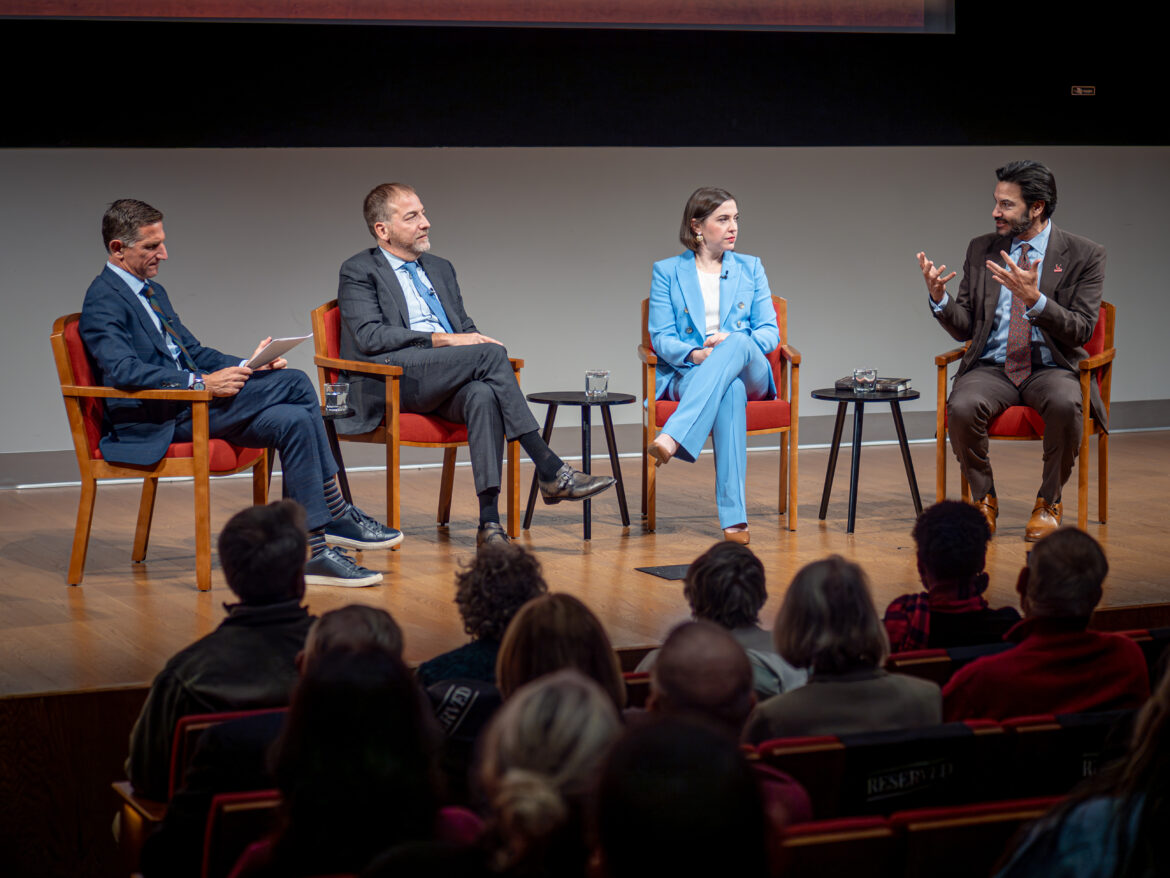Students at Montclair State University got the chance to “Meet the Press” on Oct. 15.
Chief political analyst for NBC and former host of “Meet the Press” Chuck Todd and presidential historian Dr. Lindsey M. Chervinsky discussed democracy with Montclair State University President Jonathan Koppell in the Presentation Hall of the School of Communication and Media on Oct. 15.
Conducted by dean of the School of Communications and Media Dr. Keith Strudler, the panel was centered around a discussion of the current state of American democracy and domestic affairs. The conversation weighed in on topics such as the upcoming 2024 presidential election, trusting the strength of political institutions, bipartisanship, the electoral college system and the dynamic between media literacy and politics.
With Election Day being imminent, the role the media plays in influencing the general population has changed in comparison to the 1800s. Chervinsky delved into how the innovation of technology has impacted the way people consume media.
“So I think today is less of an issue of partisan press, and more of a question of media literacy that we are grappling with,” Chervinsky said. “That is true after any innovation and technology, that was true after the printing press, that was true after the explosion of newspapers, it was true after the telegraphs, after the radio, after the television. There has been a challenge in restoring media literacy.”
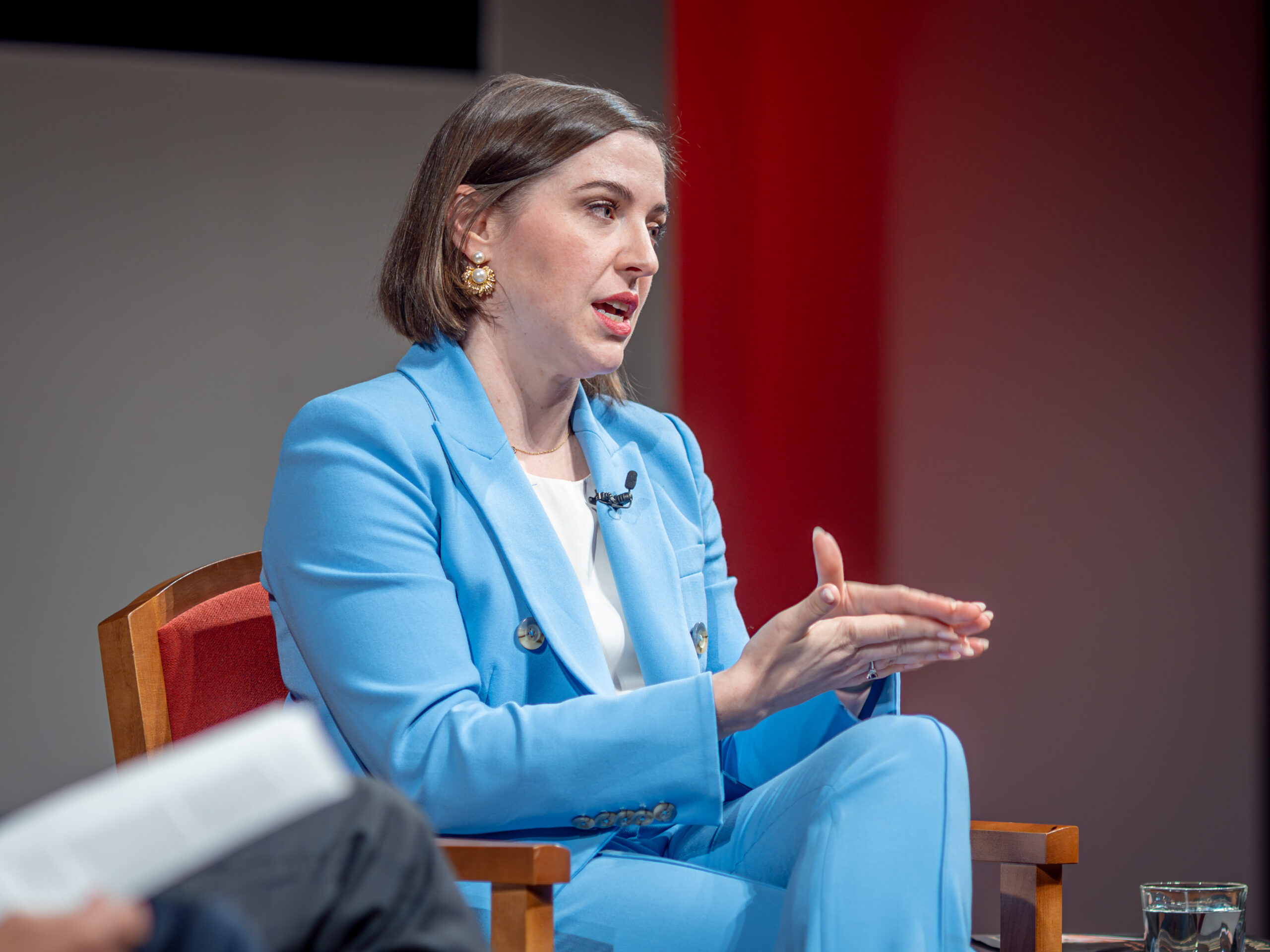
Dr. Lindsey M. Chervinsky speaking at the democracy panel.
Photo courtesy of Mike Peters
With the evolution of mass media over the decades, higher education has influenced the way student journalists approach and consume media through an academic lens. Todd highlighted the importance of fact-checking before publication.
“Just always be a little skeptical of whatever somebody’s telling you,” Todd said. “I don’t even rely on a colleague when [they say] ‘You know, it’s this.’ I’m always [like], ‘Where [did] you get the information so that I can go check it later? At the end of the day, there’s only one byline in the story, yours.”
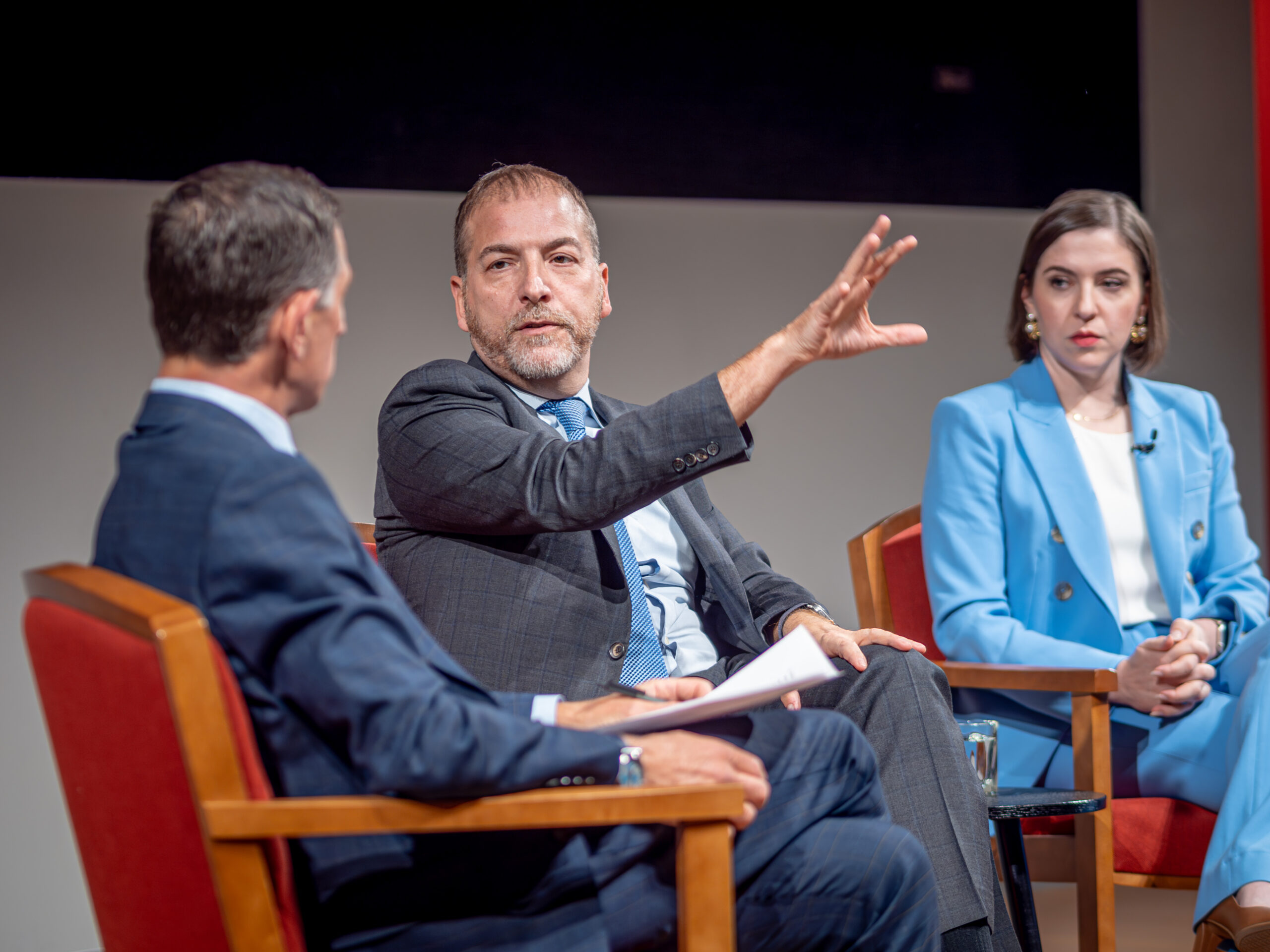
Chuck Todd discussing American democracy with his co-panelists.
Photo courtesy of Mike Peters
In addition to addressing the change in media, Todd, Chervinsky and Koppell explored the subject of trusting the strength of political institutions in modern day America.
Given the polarizing state of the American political landscape post-2020 election and Jan. 6, the three panelists expanded on the role political institutions play in this upcoming election cycle, and how the country can come together as a nation to prevent Jan 6. from reoccurring.
There was also mention of the peaceful transfer of power building up to the 2024 presidential election. Chervinsky shared her take on the impact political institutions will have in strengthening the guardrails that uphold democracy.
“I’m not sure [if] we’ve done enough to fix those guardrails,” Chervinsky said. “I’m not sure [if] we’ve done enough to restrengthen our institutions, and so when people say ‘Well, the guardrails held last time,’ it is a totally different situation. Just because they held last time, does not mean in any way that they will necessarily hold this time around.”
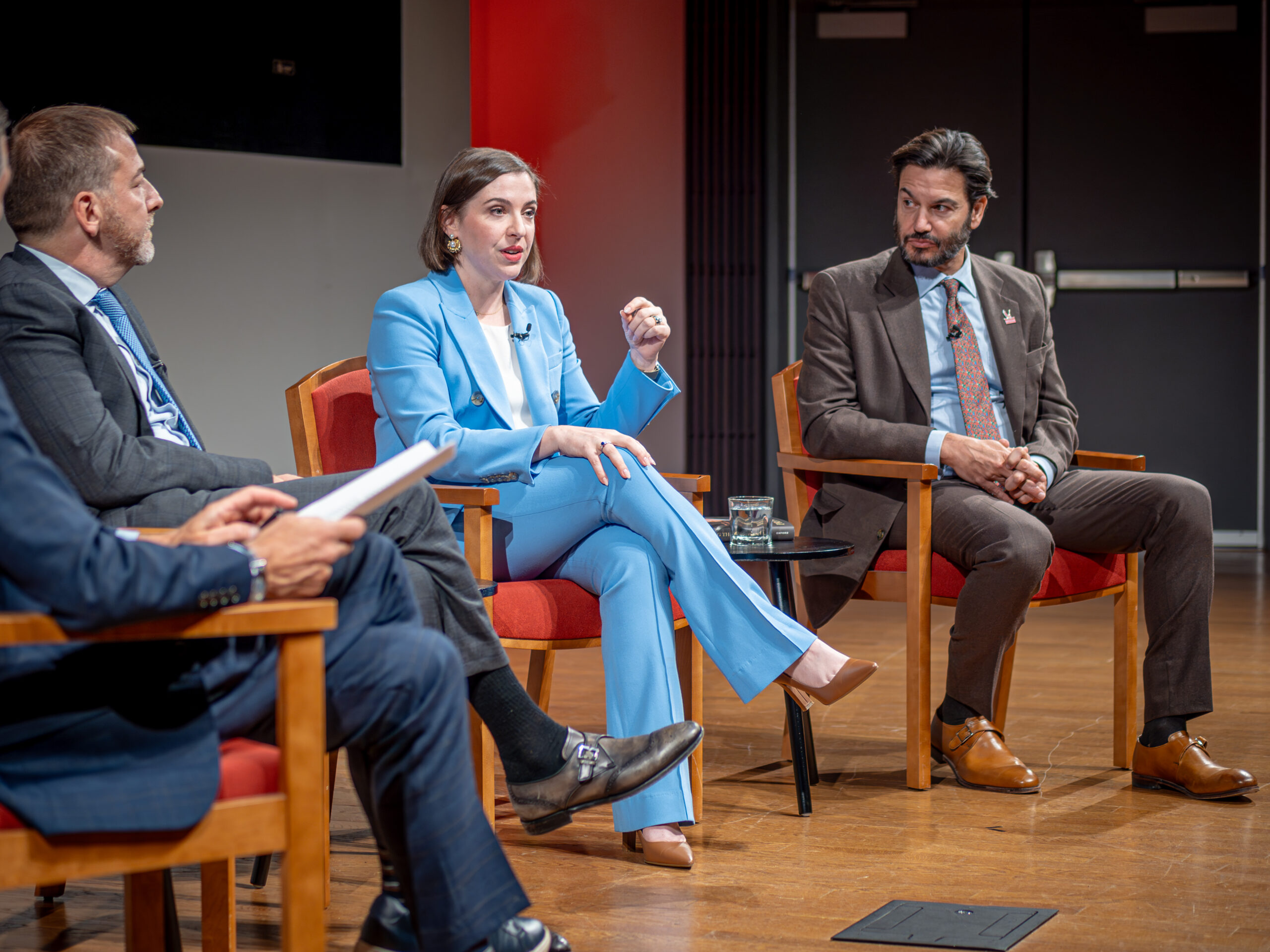
Dr. Lindsey M. Chervinsky engaging in the conversation around American politics and democracy.
Photo courtesy of Mike Peters
Toward the end of the panel, the Montclair States student’s involvement in preparing students for civic engagement was emphasized by Koppell.
“I think that what universities can and should do is create an environment, where first of all, where there is a belief that there’s a process of inquiry, there’s a way to ask questions, there’s a way to critically examine what’s being presented to you,” Koppell said. “Ascertain whether or not there’s some basis in that.”
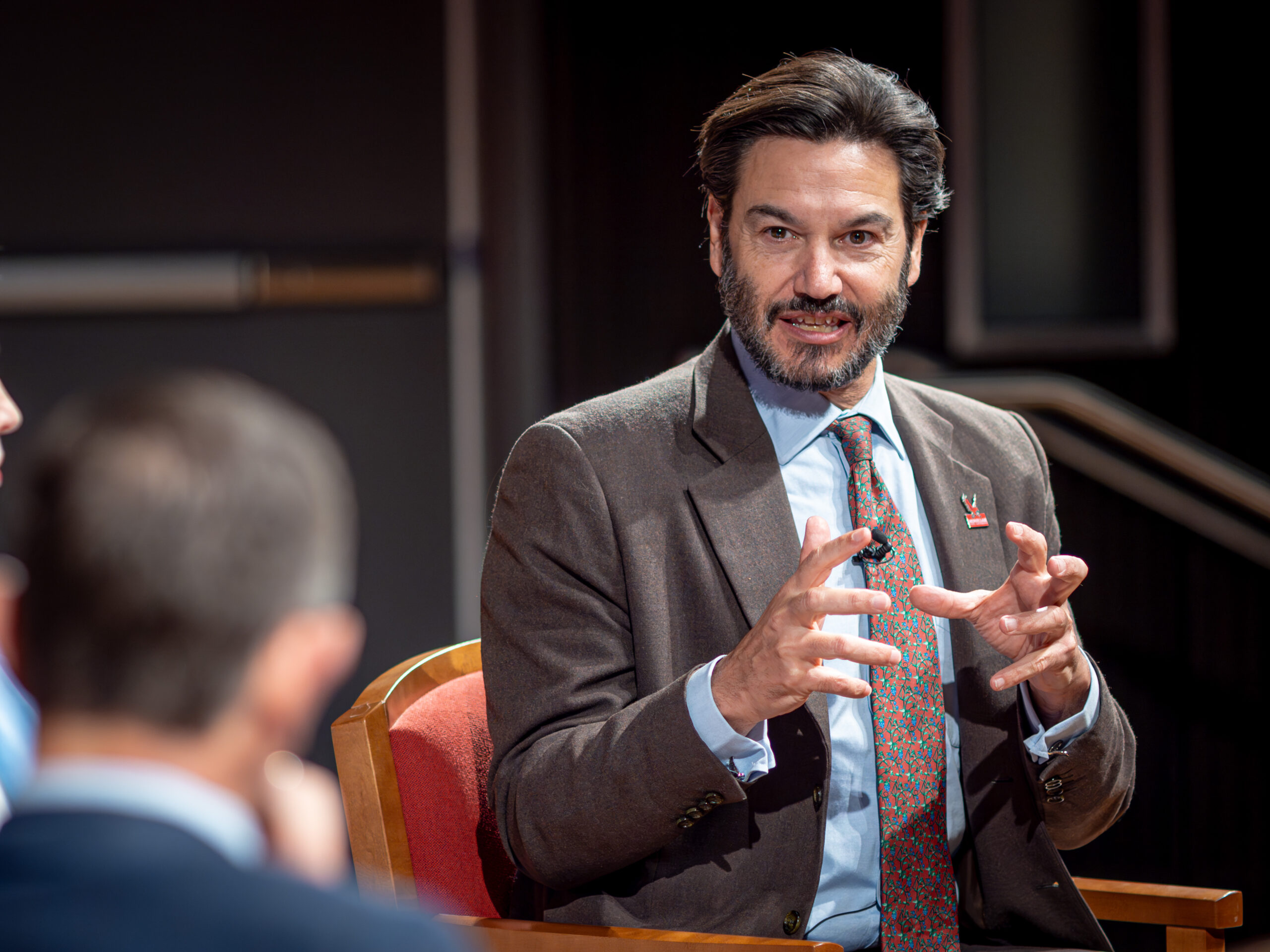
President Jonathan Koppell weighing in on the discussion on democracy.
Photo courtesy of Mike Peters
The panel concluded with a signing of Chervinsky’s new book, “Making the Presidency: John Adams and the Precedents That Forged the Republic.”

